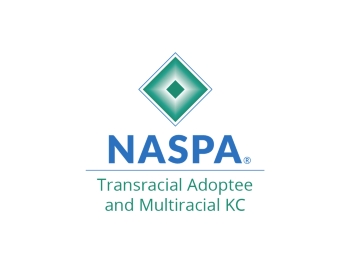Message from the Chair
Welcome to the TAMKC's page! It is our hope that you are able to connect with any of our leadership team regarding involvement opportunities, questions, or the strategic direction of our KC. Our KC strives to support scholarship, leadership, and service to our membership. We look forward to working with you!
About
We Are About
- The palette of cultural diversity
- Declaring our identity
- Changing perceptions
- A common experience
- Having a choice
- Claiming a place
Vision
The Transracial Adoptee and Multiracial Knowledge Community (TAMKC) endeavors to be a dynamic and supportive organization that brings Transracial Adoptee and Multiracial , transracial adoption and mixed-heritage issues and related research to the forefront of higher education.
Mission
The mission of the TAMKC is to advocate on behalf of Transracial Adoptee and Multiracial and mixed-heritage (hereafter referred to as Transracial Adoptee and Multiracial ) individuals, support those who work with/educate Transracial Adoptee and Multiracial students, and gain a presence within NASPA. We seek to raise awareness of Transracial Adoptee and Multiracial issues and provide a support network for NASPA members who identify with more than one race.
Through the development of educational initiatives, engaging in critical dialogues, and cultivating scholarly research, we seek to offer practical knowledge for administrators working with Transracial Adoptee and Multiracial students and colleagues. We invite those interested in learning more about Transracial Adoptee and Multiracial professionals and/or students on our campuses, those researching and/or teaching about Transracial Adoptee and Multiracial people, and our advocates and allies, to participate with us as we learn together and enhance Transracial Adoptee and Multiracial consciousness in our communities and institutions of higher education.
Finally, we seek to offer support to transracial adoptees who might self-identify differently than Transracial Adoptee and Multiracial individuals but share similar experiences related to identity, cultural affiliation, and affinity groups.
Values
- Inclusivity
- Support
- Education
- Advocacy
Overview & Working Definitions
As multiracial and transracial adoptee populations grow, the need for higher education professionals to understand specific issues surrounding identity is imperative. Multiracial is defined as those identifying as having more than one race (mixed, hapa, etc.) or exploring an identity that includes more than one race. In Census 2000, the population of the United States was shown to be 281.4 million. “Of the total, 6.8 million people, or 2.4 percent reported more than one race. Census 2000 asked separate questions on race and Hispanic and Latino origin. Hispanics who reported more than one race are included in the two or more races population” (Census 2000 brief, 2001). For purposes of this knowledge community, transracial adoptee describes an adoptee of color who was adopted and raised by White parents in the United States.
Commitment
Members will communicate at local, regional, and national NASPA meetings and at other related conferences, institutes, and meetings (NASPA Multicultural Institute, NCORE, etc.) as time allows. Technology will also be utilized to connect members and provide opportunities to share information.
Goals:
- Provide education on the complexities of developing a healthy multiracial and transracial adoptee identity.
- Build advocates committed to meeting the needs and serving the interests of multiracial and transracial adoptee students.
- Create opportunities for NASPA members to engage issues related to the multiracial and transracial adoptee population.
- Encourage research and supply resources to strengthen best practices for promoting the success of the multiracial and transracial adoptee population within higher education.
- Promote and model collaborative relationships with other KCs and organizations that compliment the TAMKC mission.
ACPA/NASPA Professional Competency Areas
The TAMKC is grounded in the ACPA/NASPA Professional Competency Areas, and we invite you to review the professional competencies in PDF along with in video form.
- PDF Format: http://www.naspa.org/images/uploads/main/Professional_Competency_Areas_Rubrics_-_Document.pdf
- Professional Competency Areas Video:
Complete Your Profile
Login and update your profile.
Leadership Team
Knowledge Community (KC) leaders are NASPA volunteers who have generously devoted their time to their Knowledge Community. KC Chair(s) are elected by the NASPA Knowledge Community members, while Coordinator roles Regional Representatives are selected from by the elcted KC Chair(s) to serve on leadership team. All elected and selected members lof Knowledge Communities must be approved by the NASPA Governing Board and hold an active NASPA membership.
Get Involved
To get involved with the TAMKC, check the Leadership Team tab and connect with your Regional Representative! We welcome your assistance in all areas of the KC, including blogging, research, writing articles and general volunteer activities. For any general inquiries regarding volunteering or involvement, please email TAMKCnaspa@gmail.com. We'll be happy to start a conversation and determine what opportunities could be best for you.
We also post positions on Volunteer Central when recruiting for specific volunteer opportunities.

Awards
Events
One of the best resources available to you is the wide range of professional development opportunities. This list contains both our “Hosted Events,” workshops and webinars that we plan and manage, and some “Related Events,” hosted by the NASPA Central Office or other NASPA Constituent Groups. To see a full listing of NASPA events, please see the Events page.
Resources
The Transracial Adoptee and Multiracial Knowledge Community compiled the following list of resources; however, inclusion on this list does not represent an endorsement of the information, site, or organization by NASPA and any of its entities.
Please note that this list is created by our community, and is not a comprehensive collection. It is intended to provide a starting point for learning more information about multiracial and adoptee experience.
If you have suggestions or resources you love, please send us a note and we’ll add them to the list.
Multiracial Resources
American Counseling Association
In 2015, the American Counseling Association endorsed and adpoted Competencies for Counseling the Multiracial Population
- View the competencies here: https://www.counseling.org/docs/default-source/competencies/competencies-for-counseling-the-multiracial-population-2-2-15-final.pdf?sfvrsn=14
Critical Mixed Race Studies (CMRS)
Critical Mixed Race Studies is the transracial, transdisciplinary, and transnational critical analysis of the institutionalization of social, cultural, and political orders based on dominant conceptions of race. CMRS emphasizes the mutability of race and the porosity of racial boundaries in order to critique processes of racialization and social stratification based on race. CMRS addresses local and global systemic injustices rooted in systems of racialization.
-
Website: http://criticalmixedracestudies.org
LovingDay
LovingDay is an organization whose mission is to fight racial prejudice through education and to the build the multiracial community.
- Website: www.lovingday.org
- Suggested resources: http://www.lovingday.org/resources
MAVIN
MAVIN is committed to creating a society that recognizes the complexity of race, racism and identity. MAVIN builds healthier communities by providing educational resources about multiracial experiences.
-
Website: http://www.mavinfoundation.org/new/
Mixed Race Studies
Curated by Steven F. Riley, Mixed Race Studies shares scholarly perspectives on the mixed race experience that provides a gateway to interdisciplinary (sociology, psychology, history, law, anthropology etc.) English language scholarship about the relevant issues surrounding the topic of multiracialism. It has been called “the most comprehensive and objective clearinghouse for scholarly publications related to critical mixed-race theory” by Rainier Spencer.
-
Website: http://www.mixedracestudies.org
Scholarly articles on Multiracial identity and/or theory
Kellogg, A.H., & Liddell, D. L. (2012). Not half but double: Exploring critical incidents in the racial identity of multiracial college students. Journal of College Student Development, 53(4) 524-541.
Kich, G. K. (1992). The developmental process of asserting a multiracial, bicultural identity. In M. P. P. Root (Ed.),Racially mixed people in America (pp. 304-317). Newbury Park, CA: SAGE.
King, A. R. (2008). Student perspectives on multiracial identity. New Directions for Student Services, (123), 33-41.
Moss, R. C., & Davis, D. (2008). Counseling biracial students: A review of issues and interventions.Journal of Multicultural Counseling and Development, 36(4), 219.
Poston, W. S. (1990). The biracial identity development model: A needed addition. Journal of Counseling and Development, 69, 152-155.
Renn, K. A., & Shang, P. (Eds.). (2008). Biracial and multiracial college students: Theory, research, and best practices in student affairs. New Directions for Student Services, 123. San Francisco: Jossey-Bass.
Renn, K.A (2004). Mixed race college students: The ecology of identity, race, and community on campus. Albany:State University of New York Press.
Renn, K. A. (2003). Understanding the identities of mixed-race college students through a developmental ecology lens. Journal of College Student Development, 44(3), 383-403.
Renn, Kristen A. (2000). Patterns of Situational Identity Among Biracial and Multiracial College Students.The Review of Higher Education, 23 (4), 399-420.
Rockquemore, K. A., & Brunsma, D. L. (2002). Beyond Black: Biracial identity in America. Thousand Oaks, CA: SAGE.
Root, M. P. P. (1990). Resolving "other" status: Identity development of biracial individuals. Women & Therapy, 9, 185-205.
Root, M. P. P. (1992). Within, between, and beyond race. In M. P. P. Root (Ed.), Racially mixed people in America (pp. 3-11). Newbury Park, CA: SAGE.
Root, M. P. P. (2001). Factors influencing the variation in racial and ethnic identity of mixed-heritage persons of Asian ancestry. In T. Williams-Leon & C. L. Nakashima (Eds.), The sum of our parts (pp. 61-70). Philadelphia, PA: Temple University Press.
Shih, M., & Sanchez, D. T. (2005). Perspectives and research on the positive and negative implications of having multiple racial identities. Psychological Bulletin, 131(4), 569-591.
Standen, B. C. S. (1996). Without a template: The multiracial Korean/White experience. In M. P. P. Root (Ed.), The multiracial experience: Racial borders as the new frontier (pp. 245-259). Thousand Oaks, CA: SAGE.
Wong, M. P., & Buckner, J. (2008). Multiracial student services come of age: The state of multiracial student services in higher education in the United States. In K. A. Renn & P. Shang (Eds.), Biracial and multiracial students (pp. 43-51). San Francisco, CA: Jossey-Bass.
Transracial Adoptee Resources
Adoption.com
Transracial adoption involves a few aspects that aren't necessarily found in other kinds of adoption
- https://adoption.com/what-about-transracial-adoption
- https://adoption.com/transracial-adoption-blind-color
Iowa Foster & Adoptive Parents Association (IFAPA)
IFAPA provides education, support and advocacy for Iowa's foster, adoptive and kinship families.
- Adoption basics for educators: http://www.ifapa.org/pdf_docs/AdoptionBasicsforEducators.pdf
Helpful blogs, thought peices and essays:
- A new study reveals rewards and challenges of raising adoptees in both Jewish and birth cultures. Rabbi Susan Silverman writes a memori of her own experiences raising her two Ethiopian sons: http://www.timesofisrael.com/funny-you-dont-look-jewish-the-story-of-transracial-adoption/
- The Realities of Raising Kids of a Different Race
- 10 Things Adult Transracial Adoptees Want You to Know
- Trend or Truth? The Realities of Transracial Adoption
- Growing up 'White,' Transracial Adoptee Learned to Be Black
- Follow @t_racial_adopt on Twitter!
Scholarly articles on adoption, transracial adoption identity and/or theory
Brocious, H. (2014). Viewing the impact of adoption camp through lens of collective identity and marginality theories. Journal of Human Behavior in the Social Environment, 24(7), 847-857.
Brodzinksky, D. M., Schechter, M. D., & Henig, R. M. (1993). Being adopted: The lifelong search for self. New York, NY: First Anchor Books.
Seligmann, L. (2013). Broken links, enduring ties: American adoption across race, class, and nation. Redwood, CA: Stanford University Press.
Collishaw, S., Maughan, B., & Pickles, A. (1998). Infant adoption: Psychosocial outcomes in adulthood. Social Psychiatry & Psychiatric Epidemiology, 33, 57-65.
Read our E-Books!
Download our .PDF versions below


